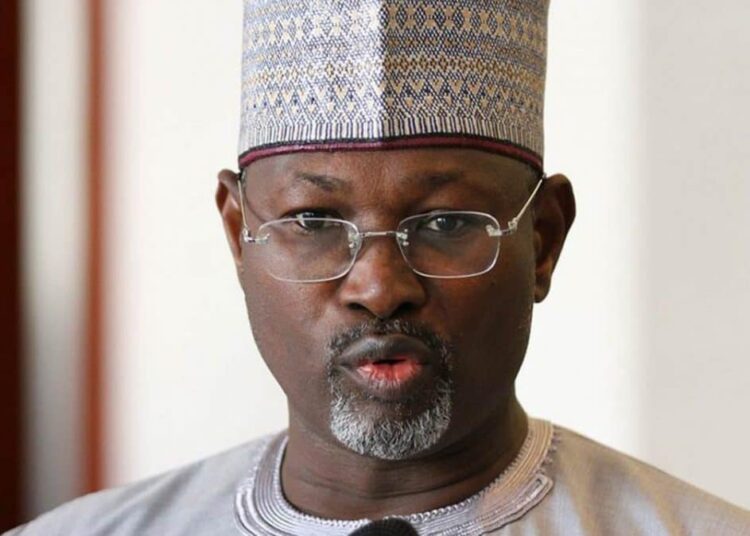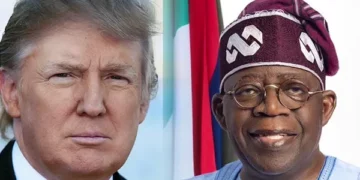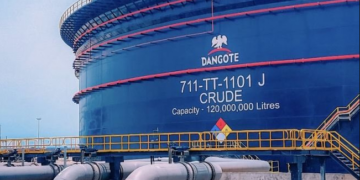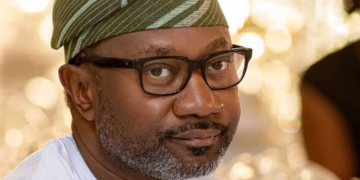A former chairman of the Independent National Electoral Commission (INEC), Professor Attahiru Jega, has said that politicians violating campaign rules should be punished.
According to Jega, the prevalence of premature campaigns raised serious challenges to the preparations and conduct of the 2027 elections and that they must be promptly stopped.
Jega asserted that the abnormality is being perpetrated quite brazenly, especially by incumbent elected officials at all levels of government, and called for punitive actions against the culprits.
The former electoral boss made this comment in a keynote presentation during an INEC Roundtable on ‘The Challenges of Premature Campaigns’ held at the Electoral Institute in Abuja on Wednesday.
Jega suggested effective sanctions as the solution for election campaign challenges, especially premature campaigns.
He said premature election campaigns were undesirable aberrations in democratic elections, and pose serious challenges to their integrity.
The scholar said that if not appropriately checked, the aberrations pose one of the most serious threats to elections and could undermine the integrity of the entire electoral process.
Jega said, “Premature election campaigns are basically campaigns done outside the legally defined period. They create an uneven playing field; disrespect and violate the law; confer unfair advantages to parties/candidates who jumped the gun; breed/entrench a culture of lawlessness and impunity; create political tensions; and may even generate tensions and conflicts and undermine law and order.
“To protect the integrity of the electoral process, most electoral systems require campaigns to be conducted according to the rules and regulations provided in the electoral legal framework; with due respect to the calendar of the elections; respecting the right and freedom of other parties to organise and campaign and reach out to the voters; respecting the election managers and not interfering with the performance of their duties,” Jega said.
Jega said the Nigerian 1999 Constitution (as amended) is comparatively silent on the issue of election campaigns and related matters but on monitoring of political parties,
The former INEC boss said the Electoral Act provided a specific timeline for the start of campaigns. Any premature campaigning violates this provision, undermining the commission’s authority and the rule of law.
He quoted Section 94(1) 83(2) of the Electoral Act (2022) which stated the period of campaigning in public by every political party shall commence 150 days before polling day and end 24 hours before that day, while Section 95(1) states that ‘a candidate and his or her party shall campaign for the elections in accordance with such rules and regulations as may be determined by the Commission.
Why we can’t sanction offenders – INEC
However, the electoral umpire, INEC, has said that while Nigerians expected it as the registrar and regulator of political parties to act in the face of politicians and their foot soldiers’ brazen breaches of the law during early campaigns, the commission was legally constrained to act against violators.
The chairman of INEC, Professor Mahmood Yakubu, disclosed this at a stakeholders roundtable on ‘The Challenges of Premature Political Campaigns’ in Abuja on Wednesday.
He said that while Section 94(2) of the Electoral Act 2022 imposes sanctions, albeit mild (a maximum amount of N500,000 on conviction), on any political party or a person acting on its behalf who engages in campaigns 24 hours before polling day, there is no sanction whatsoever concerning breaches for campaigns earlier than 150 days to an election.
INEC Recognises David Mark-led ADC
Meanwhile, INEC has officially recognised Senator David Mark and Rauf Aregbesola as national chairman and national secretary of the African Democratic Congress (ADC), respectively.
INEC gave this affirmation in a Wednesday notice posted on the commission’s social media handle.
According to the notice, the commission recognised Dr Ibrahim Mani as the party’s national treasurer, Akibu Dalhatu as its national financial secretary, and Professor Oserheimen Aigberaodion Osunbor as its national legal adviser.
This has put to rest the party’s leadership tussle that broke out after Ralph Nwosu, the immediate past national chairman, resigned and Mark emerged as the ADC helmsman.
Also, Peter Obi, the Labour Party (LP) presidential candidate in the 2023 election, confirmed he will contest the 2027 presidential election and promised to serve a single four-year term if elected.
Similarly, Chibuike Amaechi, a former Minister of Transportation, has declared his intention to vie for the presidency on the ADC platform if he gets the ticket.
Yakubu said the intention of Section 94(1) of the Electoral Act 2022, prohibiting campaigns earlier than 150 and ending 24 hours before election day, was to prioritise governance over electioneering from one electoral cycle to another.
However, he said, political parties, candidates and their supporters seemed to be perpetually in election mode even when the electoral body had yet to release the Timetable and Schedule of Activities for elections or ahead of the timeframe provided by law.
“Around the country, we have seen outdoor advertising, media campaigns and rallies promoting various political parties and candidates. These actions and activities undermine the Commission’s ability to track campaign finance limits as politicians, prospective candidates and third-party agents expend large amounts of money that cannot be effectively monitored before the official commencement of campaigns.
“Quite correctly, Nigerians expect INEC, as registrar and regulator of political parties, to act in the face of the brazen breach of the law on early campaign. However, the major challenge for the Commission is the law itself.”
On his part, Prof. Abdullahi Zuru, INEC national commissioner and Chairman of the Electoral Institute (TEI), highlighted a key challenge to Nigeria’s democracy: the rise of early campaigns by politicians and their proxies.
“Aspirants often use cultural and religious events to hint at ambitions, disguised as appreciation or charity. Billboards and branded vehicles display slogans that skirt direct solicitation but clearly reveal intent. More recently, social media influencers flood platforms like Facebook, Instagram, TikTok, YouTube, and X with content promoting aspirants well before legal campaign periods.”
He cited the Electoral Act 2022, which states in Section 94(1) that campaigning by political parties starts 150 days before polling and ends 24 hours before election day. This rule aims to ensure fairness, reduce tension, and create a level playing field.
“Yet, we see increasing attempts to bypass this law, often using third-party groups as fronts for early campaigns,” Zuru said.
He warned that premature visibility contests distort fairness, raise competition costs, and shift elected officials’ focus from governance to political survival. This trend undermines public trust and fuels doubts about law enforcement.
“We must clearly define early campaigning in the digital age and strengthen enforcement to detect and sanction violations swiftly,” Zuru concluded.





